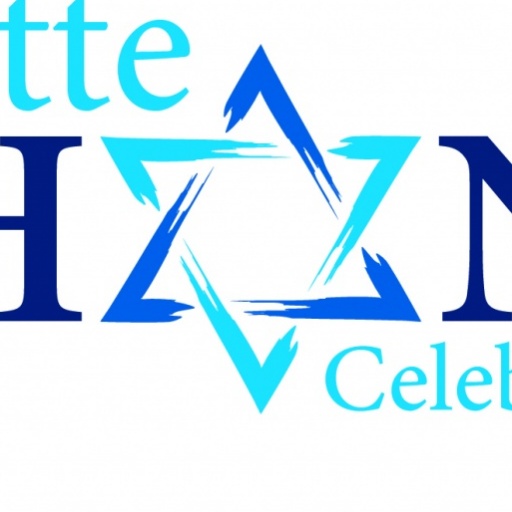By Amy Lefkof
Recent executive orders and policy changes by the current administration have dramatically reshaped the national refugee resettlement landscape, significantly affecting local immigrant communities and the Charlotte organizations that serve them. These measures include an indefinite suspension of the U.S. Refugee Admissions Program, a halt to federal funding for resettlement services, and the termination of several humanitarian parole programs that had provided temporary refuge for more than half a million people —who now face potential deportation. In response to these pressing issues, the Jewish Community Refugee Initiative (JCRI), a lay-driven social justice action initiative spanning all of Shalom Park, is hosting the Zoom program “Refugee Resettlement at Risk” on Thursday, May 22, from 7–8:30 p.m. This sixth installment of JCRI’s Welcoming the Stranger to the Table series will bring together local and national experts to explore the broader implications of recent policy shifts, discuss historical perspectives on refugee resettlement, and outline pathways forward for community advocacy and involvement.
Panelists include Naomi Steinberg, vice president for policy and advocacy at HIAS, founded as Hebrew Immigrant Aid Society, who will offer a national advocacy perspective informed by HIAS’s long history of refugee assistance; representatives from the Charlotte Center for Legal Advocacy, providing critical insights into the legal and humanitarian challenges facing
immigrant children and families; and leadership from local refugee resettlement agencies sharing firsthand experiences about the evolving situation in Charlotte. Elizabeth Weinstein, JCRI co-chair and refugee volunteer, emphasizes the significance of this program, noting: “Sometimes we are the only Jews that refugees have ever known, and so the work of JCRI is also very important to combat antisemitism.”
HIAS’s local affiliate, Carolina Refugee Resettlement Agency (CRRA), has resettled newly arrived refugees and provided them with basic services for the past three decades. Together with Catholic Charities, the other Charlotte resettlement agency, they have resettled over 20,000 refugees in the Charlotte area during the past 30 years. North Carolina is consistently one of the top refugee resettlement states. Yet, according to Marsha Hirsch, CRRA’s executive director, “Reception and Placement Service contracts have been broken by the government and are part of lawsuits in federal court.”
The impacts extend beyond finances, with families previously approved for resettlement, including Afghan allies who supported U.S. military operations, finding their paths to safety suddenly blocked. Additionally, nearly 4,000 Ukrainian refugees living in North Carolina risk losing their legal status, and the Charlotte Center for Legal Advocacy experienced a severe setback when it lost a $900,000 grant for legal representation of more than 300 vulnerable immigrant children, many of whom must now navigate immigration courts alone.
While speakers will primarily address the U.S. Refugee Resettlement Program and the local impact of recent policy changes and executive orders aimed at dismantling it, related issues also will be covered: parolees (such as 4,000 Ukrainians in Charlotte), Temporary Protected Status (TPS) holders, and other immigrants in our community facing threats of deportation.
Charlotte Center for Legal Advocacy’s Immigrant Justice Program will discuss the abrupt halt of the majority of their federal funding to support their Unaccompanied Children Program.
On its website, Kara Moskowitz, interim chief executive officer of the Advocacy Center, emphasized the devastating impact of this decision since her agency “… currently has more than 300 active cases affected by this funding cut impacting children who have suffered abuse, neglect or abandonment. Without legal representation, these vulnerable children face insurmountable barriers to securing safety and stability… leav[ing] hundreds of children defenseless in a complex legal system that was never designed for them to navigate alone.”
And finally, the executive order indefinitely halting the admission of refugees negatively impacts 700 Iranian Jews who had applied for refugee status through HIAS — applicants for a special program for members of religious minority groups in Iran, the Lautenberg-Specter program.
The panel will examine how these executive orders disregard decades-long bipartisan support of refugee resettlement, codified in the Refugee Act of 1980, in the wake of our country’s moral failure during WWII when it turned away Jewish refugees, such as those aboard the ill-fated St. Louis. Lastly, local opportunities for volunteering, advocacy, and financial support will be discussed.
To receive the Zoom link, please register at charlottejcc. org under Events or by calling the Levine JCC customer service desk at (704) 366-5007.
Support JCRI with an Online Donation:
If you cannot attend but wish to support local agencies serving new immigrants, donations can be made online by visiting tbe.shulcloud.com/form/donations. Click Donation Type, select Pass Through, and choose Jewish Community Refugee Initiative. Checks can also be sent to Temple Beth El (JCRI’s fiduciary agent), noting JCRI in the memo line. Your generosity helps continue this essential community work—thank you!
Photo Caption: JCRI co-chair Elizabeth Weinstein, a member of Temple Beth El and Jewish Federation of Greater Charlotte’s Bernstein Leadership Group, posing with a new Kurdish-American citizen, whose husband had been a translator



